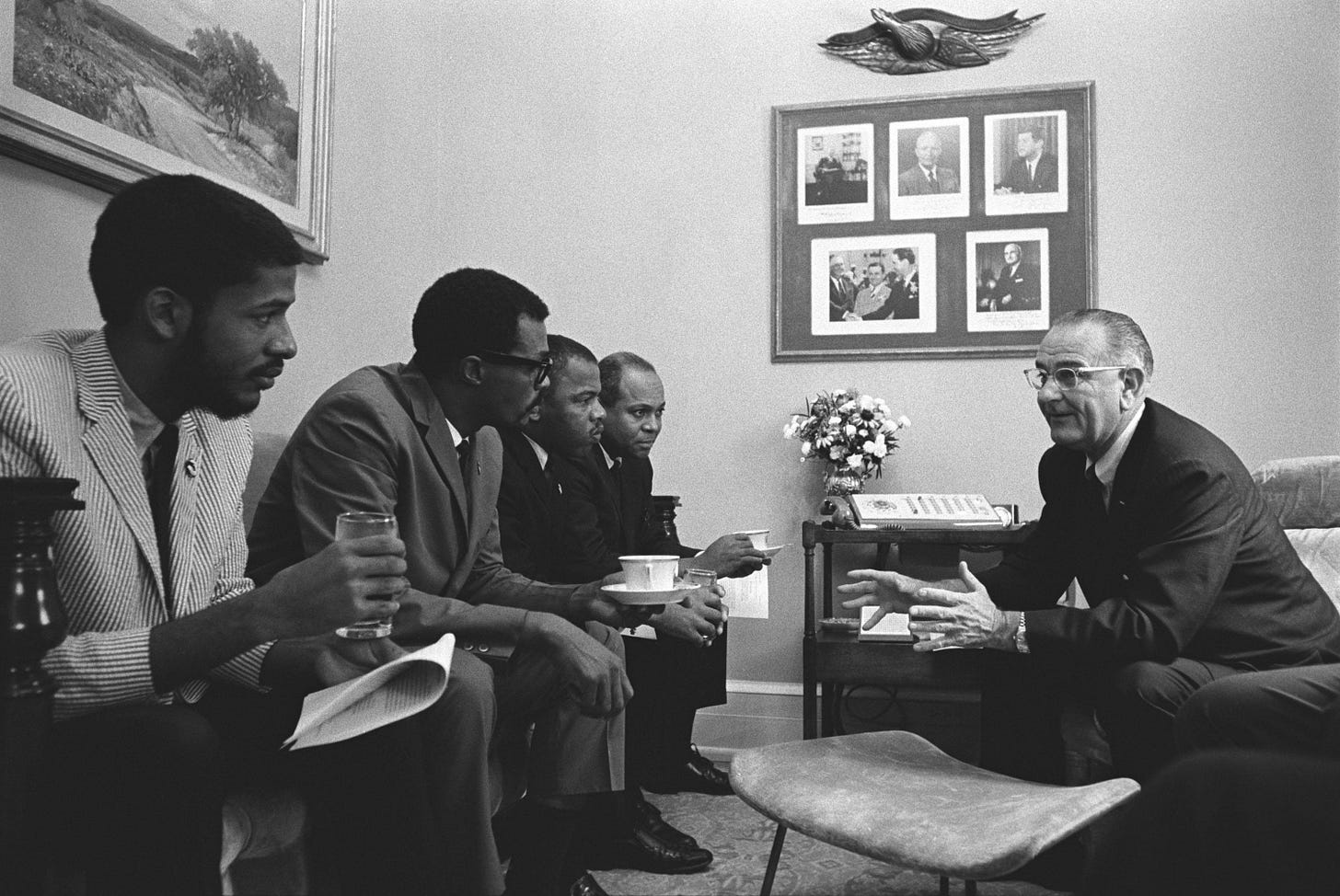A Daily Reid: the Republican war on democracy
In order to retain power, and continue sucking this country dry, economically, Trump and Republicans have to end our ability to remove them from power through elections.
Today is the 60th anniversary of the U.S. Senate passage of the Voting Rights Act, which President Lyndon Baines Johnson signed into law two days later, on August 6, 1965. There’s a great photo of him sitting in his office with civil rights leaders including James Farmer and John Lewis before the signing. Here it is:




